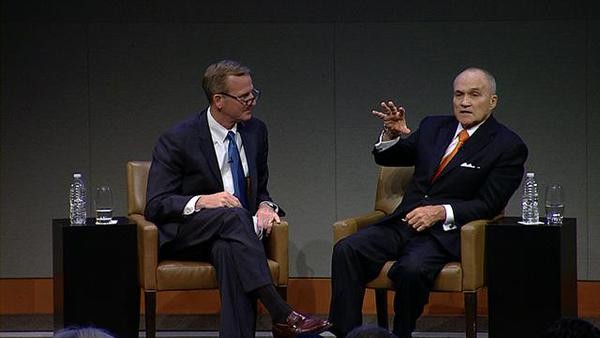Nick Mathiason meets Michael Sherwood of Goldman Sachs
Post on: 5 Октябрь, 2015 No Comment

Goldman Sachs is without question the world’s most successful investment bank and Michael Sherwood, at just 42, jointly runs its Europe, Middle East and Africa division from London. Last week, it emerged that the highest-paid Goldman director pocketed a 5m pay rise, taking his package to 11.7m. It was reported that Sherwood was the lucky recipient — erroneously, as it turns out.
Still, he scooped a handsome salary, adding to his estimated 225m fortune. But to many, the idea of a banker receiving huge rewards at a time when lenders are in the teeth of their biggest crisis since the Wall Street Crash 79 years ago is a sign that the world has gone mad.
Staffed by ‘the haves and the have yachts’, Goldman is no ordinary bank; many describe it as a 21st century cult. A banker’s every whim is catered for. Go on holiday and human resources will want details of your precise location, in case you need to be airlifted out in an emergency. Information is shared between seriously rich financiers rather than hoarded. Average pay, including secretaries, is well over 300,000. Its bonus pool runs into the hundreds of millions.
Yet its world view of risk and reward has seemingly won out. It has emerged from the financial collapse relatively unscathed. Goldman’s most recent results revealed a 1bn hit and a quarterly profit drop of 53 per cent. This, however, is small change compared to its Wall Street peers — the so-called ‘bulge bracket’ of powerful global banks. UBS last week lost 19bn in just three months. In fact, Goldman is remarkable in that it made profits of more than 750m in a quarter that saw merger, bond market and listing activity all but dry up.
What’s strange is that — unlike economists from rival banks — weeks before the credit crunch Sherwood was privately arguing that the United States was set fair for strong growth and that the world economy, barring unforeseen disasters like 9/11, was on a growth trajectory. Events such as the Israel/Lebanon war and the collapse of the odd hedge fund were absorbed by steaming markets stoked with cheap money and the emergence of China and India as global economic powerhouses.
How different things are today. The talk now is of the end of aggressive investment banking as the US government, the Fed and their counterparts on this side of the Atlantic bail out financial institutions with billions of dollars. However, ask Sherwood if the banking world is about to enter a new sober paradigm and he maintains that Goldman’s was never one for taking undue risk in the first place. He says that the firm’s chief executive, Lloyd Blankfein, who took over from current US Treasury secretary Hank Paulson, drummed into his cohorts that cycles turn and financial crises take ‘seconds to develop’. ‘I never thought we were swashbuckling,’ explains Sherwood. ‘Goldman Sachs trades in a measured way. When other firms we’re trading at 20 or 30 times their earnings, we were in single digits.’
This comes as a shock to rivals, who whisper that the institution went to the edge of the precipice on some trades and deals. One senior insider says: ‘For two or three years Goldmans has been taking big risks but, to its credit, it’s been better at analysing them. Rivals have been saying it’s been riding for a fall, but the fact is its rivals are much more exposed.’
So exposed that Fed officials have now been parachuted into the offices of leading US institutions to monitor their activity. The talk is of regulators striking back with new rules. No wonder: despite clear warning signs, banks were allowed to invent arcane debt instruments that have brought the US and Europe to the brink of recession. Sherwood concedes that new limits on bank activity are inevitable. ‘The amount of risk is going to be clearly monitored,’ he admits. He says the firm is in daily discussions with the Financial Services Authority and that relations with the Canary Wharf regulator are excellent.
He is a long-term admirer of Gordon Brown’s marshalling of the economy, and such loyalty has paid off. Goldman was called on to advise the government on the sale and eventual nationalisation of Northern Rock. It has also just scooped the job of selling the publicly owned betting organisation the Tote to the private sector. It is obvious that Sherwood enjoys clear channels of communication with the Prime Minister but Goldman’s success in winning lucrative government work is achieved, he says, in a ferociously competitive market. And colleagues will say that, in any case, the fees aren’t that great.
Having recently dismissed the Tories, Sherwood has changed his tune slightly. Though claiming not to be ‘political at all’, he goes on to say: ‘Both parties have good ideas. Many people say the Tories seem like a breath of fresh air but Gordon Brown is sensible, shrewd and has his heart in the right place.’ He points to how Brown persuaded the G7 to back a bond to ensure HIV medicines would be available to children in poor countries, an issue Goldman helped organise.
You get the feeling that Sherwood, known in his younger days for his colourful language, has reined in his more aggressive instincts in line with his stature, and to suit the times. You can see how he might have dovetailed with the combustible Sir Philip Green; it was Sherwood who was prepared to put up billions of pounds to enable the tycoon to launch a bid for Marks & Spencer.
There was talk last month that a reorganisation of its bond division’s chain of command, which saw him share oversight responsibilities with a colleague, was a signal that he was being sidelined after a meteoric 20-year career path.
That is nowhere near the mark, says Sherwood. ‘I’m too young to be kicked upstairs,’ he says. ‘I’m still hands-on.’
Sherwood joined Goldman Sachs straight from Manchester University, aged 20. He has already notched up 22 years in the demanding arena of the world’s highest-profile investment bank — more than double the average span of a banker at the firm. His time at Goldman has seen the firm’s numbers grow by huge multiples. It now employs 6,500 people.
Sherwood’s contemporaries hold him in fond regard. Described as charismatic, he has a quick wit and a street-wise political savvy. Pragmatic and acutely aware of tensions in society, he is seriously involved in charitable activities, principally focused on children’s education and sport. As head of Goldman’s European division, he is trying to increase the number of women in senior positions at the bank. Just 10 per cent of its partners are female, although that is a better ratio than most firms in the City.

Aren’t women put off by the master-of-the-universe attitudes? ‘The machismo culture has died. [The contrast] from what it was like 20 years ago to now is like night and day.’
You suspect that is also the case with Sherwood. Goldman spotted his entrepreneurial ability to make vast profits in what were considered boring debt markets, and he has risen to be the master in his universe. As the banking crisis intensifies, he seems set to maintain that mastery.
The CV
Name Michael Sherwood
Born July 1965; Grew up in Highgate, north London
Education Westminster and University of Manchester
Career Goldman Sachs since 1985
Family Married, two children














